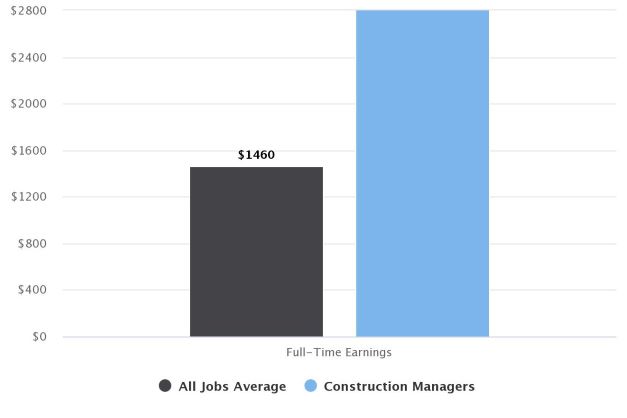
If you're working on a Washington State public works project, you need to comply with the prevailing wage laws. A thorough knowledge of the laws, exemptions and requirements that apply to your specific project is essential in order to be compliant. The law is a tool that can help you save time, money and frustration.
WDLI
Washington state's prevailing wages are based on an hourly standard. This is used when there is no fixed workweek. This method was deemed more likely to be used in Washington state courts. The state legislature, however, refused to include the FLSA's uniform workweek standard. Washington Supreme Court supported the per-hour system.

U.S. Department of Labor
The U.S. Department of Labor's Washington State prevailing wage is a fixed amount that all workers must pay for the work they do. However, owners and employees may not be required to pay their employees the prevailing rate. Owners and business partners that own 30% or more share in the business are exempt from the prevailing-wage requirements. Supervisors and foremen must still be paid at the prevailing wage and for all hours worked.
Industrial Statistician
The Industrial Statistician is responsible for setting the prevailing wage rates in Washington State by surveying local business. This survey gathers data on the labor hours and wages paid to businesses in a particular county. This data is then systemized and checked for accuracy. The Industrial Statistician posts the prevailing wage rate twice a year.
Public Works Act
The Washington State Department of Labor and Industries decides the prevailing wages rates. The department reviews wage levels and fringe advantages for different trades or occupations. It then sets the prevailing rate for different counties within the state. These prevailing wage levels are used to determine wages and fringe rewards paid to public work contractors.
Hourly rate
The Washington State Department of Labor and Industries sets the prevailing wage rate. This department determines the prevailing wage rates in each county by researching average pay and benefits for workers from different occupations. These prevailing rates are determined by the wage conditions in that particular county.

Non-payment carries a penalty
Washington enforces The Public Works Act, also known by the "prevailing wage" laws, to ensure that workers get paid the prevailing rate when they work on public projects. These regulations set the minimum wages for employees on construction projects and require contractors to pay the required rates and overtime pay. These prevailing wage rates are determined by the Department of Labor and Industries and vary by county and type of labor.
FAQ
Where can I find more information about building permits?
You can contact your local government authority, such as the NSW Local Government Association, or your local realty agent. They will be able to tell you what steps you should take to obtain building permits.
What is the purpose of the service agreement?
The purpose of a Service Agreement is to define the terms under which a customer agrees to purchase goods from you. It also defines how you will provide those services to them for payment.
The most common type of such document is the Sales Order Form. This section lists the products being purchased by the customer as well as their price. The order will also include any additional items, such as delivery costs, VAT, insurance, and so forth. Finally, you specify when the order should be delivered and paid for.
You may use a different document depending the nature of the transaction.
You might use an invoice if, for example, you are selling a product but providing a service.
You would probably use a Purchase Order Form if you buy something from someone else.
Make sure to include all necessary information when you are creating a sales form.
Remember that the buyer will appreciate a more detailed sales order form.
Are there additional considerations I need to make?
Yes. Please check your local laws for details about what projects you are allowed to do and the conditions that you need. Some states require that you obtain council approval to build. Some states only require you to notify them about your plans. To find out their position on the matter, check with your local authorities.
Statistics
- (d) Contractor disputes related to compliance with its obligation shall be handled according to the rules, regulations, and relevant orders of the Secretary of Labor (see 41 CFR60-1.1). (acquisition.gov)
- Reasonable late fees go up to 25% per year on unpaid sums. (lawdepot.com)
- While we offer all our high-quality services at competitive prices, we know that many who need our services are on fixed incomes, so we offer a 10 percent discount for seniors and military members. (homeservicecontractorsinc.com)
- Depending on the client's trustworthiness and financial stability, a deposit is usually 10 to 50% of the total contract amount. (lawdepot.com)
- (1) Except as provided in paragraphs (a)(4) and (a)(8) of this section, if the estimated amount of the contract or subcontract is $10 million or more, the contracting officer shall request clearance from the appropriate OFCCP regional office before- (acquisition.gov)
External Links
How To
How can I start to negotiate my first service contract?
Negotiating terms for the first service agreement can seem daunting.
However, negotiating the terms of a first contract doesn't have to be difficult.
It all depends upon how prepared you're.
Before you begin negotiations, you should ensure that you understand the terms and conditions of your first service agreement.
You should be clear about what you will do for your customer.
And you should know what the customer expects from you.
Once you have a clear picture of the services you provide, it is time to start planning for negotiation.
The more information you have, you will be better prepared for when you meet up with the other party.